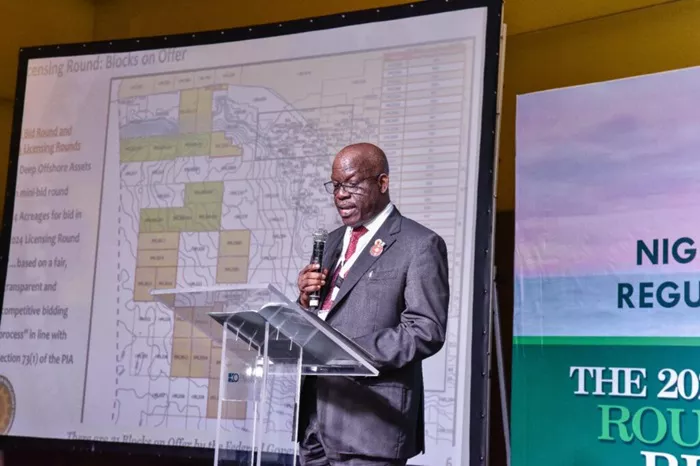The Nigerian Upstream Petroleum Regulatory Commission (NUPRC) has confirmed that several licensees have formally applied to convert their Petroleum Prospecting Licences (PPLs) into Petroleum Mining Leases (PMLs) to avert the expiration of approximately 40 PPLs granted in June 2022. The commission issued a statement addressing concerns after a document posted on its website indicated these licences would expire on June 27, 2025.
Gbenga Komolafe, Chief Executive of NUPRC, acknowledged the document’s authenticity but warned that its publication might cause undue panic and confusion within Nigeria’s upstream petroleum sector. He explained that the PPLs in question are at various stages—including exploration, appraisal, and pre-development—with each stage subject to distinct regulatory requirements and timelines.
“Several licensees have submitted formal applications to convert their PPLs into Petroleum Mining Leases as mandated by the Petroleum Industry Act (PIA) 2021. These applications are currently under review,” Komolafe stated.
The commission further clarified that many operators have fulfilled their minimum work programme obligations under Section 78 of the PIA, qualifying them for licence extensions. Production commencement, the NUPRC emphasized, is not the sole benchmark for compliance.
“The commission remains committed to transparent and open dialogue while enforcing a robust regulatory framework that benefits all Nigerians,” the statement added.
The licences are mostly linked to the 2020 marginal fields bid round and pertain to various oil fields across Nigeria. These licences, held by companies such as EOP Energy (Emohua field, OML 22), Ardova Plc and Petrodev (Olua field, OML 25), and Ingentia Energies Limited (Egbolom field, OML 23), are all due to expire unless renewed.
Others potentially affected include Matrix Energy and Bono Energy Limited (Alamba field, OML 42), Energia and Annajul Rosari (Irigbo field, OML 42), ENEROG Limited (Ugbo field, OML 40), and A. A. Rano and Acrete Petroleum (Oloye field, OML 95). Several fields under OML 95, OML 89, OML 49, OML 67, and OML 70 are also on the list of licences set to expire.
The NUPRC reiterated that, per the PIA, licensees must apply for renewal or conversion within specified regulatory frameworks, with the law allowing for optional extensions of three or five years depending on terrain and company performance.
Energy expert Professor Emeritus Wumi Iledare noted that licence renewal is contingent on meaningful exploration or development activity, warning that licences lacking such progress are unlikely to be renewed. He stressed that each licence includes predetermined expiration or relinquishment dates as per PIA regulations.
Meanwhile, the Federal Government has declared its intention to revoke all dormant oil assets to boost dwindling oil revenue. Heineken Lokpobiri, Minister of State for Petroleum Resources (Oil), underscored the government’s “drill or drop” policy, stating it will reclaim idle oil wells from operators who fail to progress.
“Out of about 60 companies granted licences in the last marginal bid round, only a handful have commenced production. Licences are valid for three years and renewable for another three years, contingent on adherence to work plans. Non-compliance will result in licence cancellation,” Lokpobiri said.
He further cautioned that holding onto licences without the capacity to fund operations only impedes industry growth, affirming the government’s readiness to act decisively against underperforming operators.
As the June 27 deadline approaches, industry stakeholders await the commission’s final decisions on the licence conversions and renewals, which will significantly impact Nigeria’s upstream petroleum landscape.


